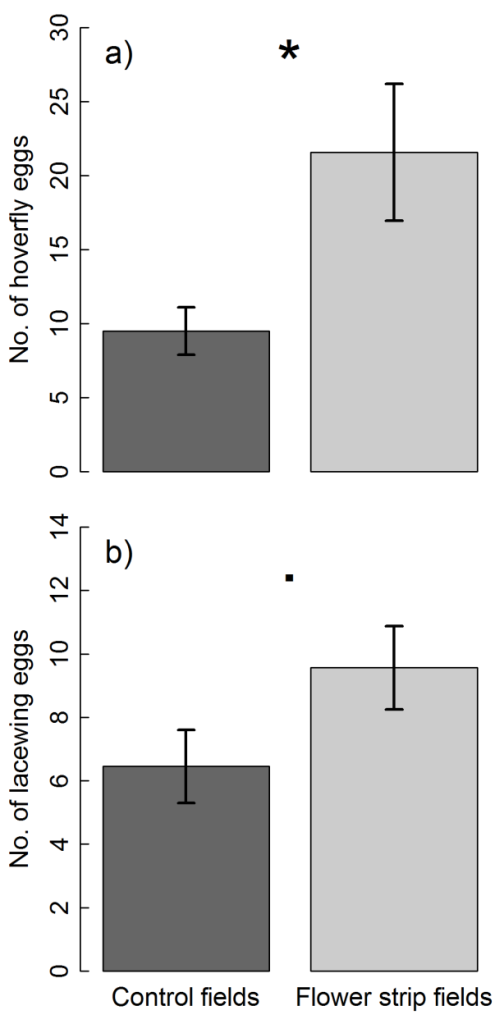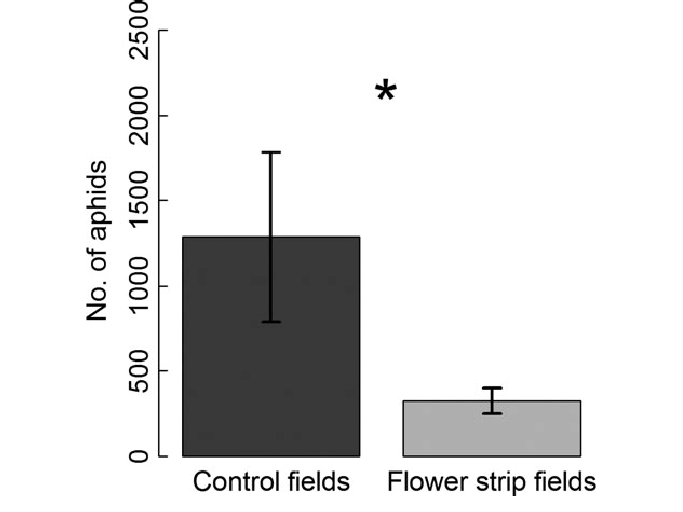Matthias Tschumi, Matthias Albrecht, Viktor Dubsky, and Jana Collatz shed light on an innovative approach to pest control in potato crops. Their research focuses on the effectiveness of tailored flower strips, implemented within agri-environment schemes (AES), in promoting natural enemies of aphids and enhancing ecosystem services.
In their study, experimentally sown annual flower strips comprising diverse plant species were tested adjacent to potato crops. The tailored flower strips were designed to attract key natural enemies of aphids, such as hoverflies, lacewings, and ladybirds, thereby providing natural pest control services.
The findings revealed a significant increase in the abundance of hoverflies, lacewings, and ladybirds in the tailored flower strips compared to control fields. Moreover, hoverfly species richness was notably enhanced in these flower strips.
This surge in natural enemy populations translated into tangible benefits for adjacent potato crops. The number of eggs deposited by hoverflies and lacewings increased substantially, leading to a remarkable 75% reduction in aphid populations.
The implications of this research are profound. Tailored flower strips offer a sustainable and effective means of pest control, potentially reducing the need for insecticide input in potato production. Furthermore, by promoting natural enemy abundance and diversity, these flower strips contribute to the stability of pest control and support biodiversity conservation efforts.
In conclusion, Matthias Tschumi, Matthias Albrecht, Viktor Dubsky, and Jana Collatz advocate for the widespread adoption of tailored flower strips as a management strategy to achieve ecological intensification while safeguarding biodiversity in agricultural landscapes.
The article summarizes the research findings of Matthias Tschumi, Matthias Albrecht, Viktor Dubsky, and Jana Collatz on the effectiveness of tailored flower strips in enhancing natural pest control services in potato crops, emphasizing the potential of this approach for sustainable agriculture and biodiversity conservation.






